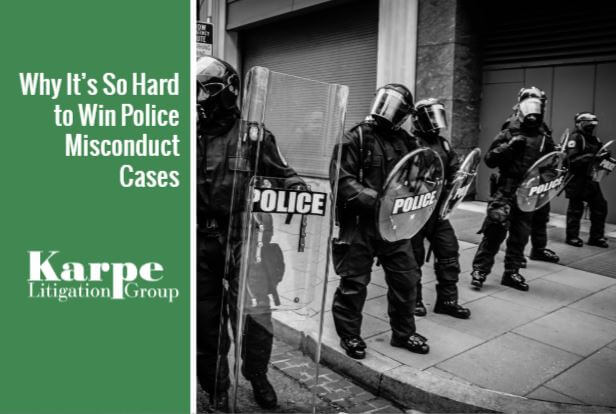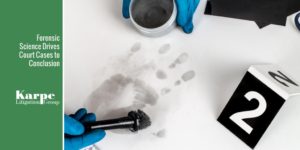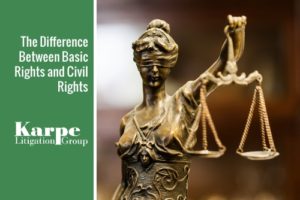
Legal cases involving police misconduct often don’t make it to trial. Even when they do, they are difficult cases to win.
While the majority of Indiana law enforcement officers do their jobs admirably and conduct themselves with honorable dignity, that’s not always the case.
Consider the Elkhart, Indiana Police Department. In November 2018, Elkhart mayor Tim Neese suspends police chief Ed Windbigler following the release of a video showing two Elkhart police officers punching a handcuffed man in the face. Less than a month later, Mr. Windbigler resigns as police chief amid the controversy and his disciplinary actions – or the lack thereof. Under Chief Winbigler’s watch, 28 of his department’s 34 supervisors have disciplinary records, with 15 of his officers suspended more than once, according to an exposé by the South Bend Tribune and ProPublica. Several of these supervisors still hold their positions, including Assistant Chief Todd Thayer and Patrol Chief Capt. Brent Long.
While most police departments in Indiana and other states don’t have the kind of disciplinary issues of the Elkhart Police, officers are subject to allegations of misconduct and abuse on a consistent basis. It’s rare for these cases to be pursued in criminal court, so most police misconduct and abuse cases are generally civil suits brought by the victims of misconduct. They sue for monetary compensation in the hope of recouping the necessary funds to pay medical bills or to compensate them for mental and emotional distress related to their experience.
Unfortunately, cases involving police misconduct rarely make it to trial. And if they do, they takes a long time to get there, thanks in large part to tactics utilized by defense teams.
Public Safety Officials Behaving Badly
Police misconduct is defined as any time a public safety official abuses the power of their position or office. This behavior includes:
- Excessive force
- Police brutality
- Police shooting
- Abuse of power
- Physical violence
- Undue restraint
- Unnecessary and degrading strip searches
- Sexual assault
- Blackmail and coercion
- Racial profiling
What Can Happen With A Police Misconduct Case in Court
When a police misconduct lawsuit is first filed, it is assigned to a district court judge. The defense attorney representing the officer alleged to have committed the misconduct can file a number of motions to dismiss the entire case or select elements of the case like a piece of evidence. The defense can also file motions for hearings that can dismiss a trial, depending on their outcome.
A common defense tactic is a hearing for summary judgement. In this hearing, the alleged victim must prove to the court that there is a dispute on a material fact in the case. The victim must sway the court ruling that a reasonable jury would 1) believe the allegations and 2) the facts in the case would prove liability. Many police misconduct cases are a “he-said, she-said” situation, so many times the judge will rule against the alleged victim. The case stops cold.
The Qualified Immunity Standard
Another nullifying tactic used by the defense in police misconduct and brutality cases is the qualified immunity standard. This states that an alleged victim must prove two things:
- That a reasonable officer in the same position would have known the conduct is unlawful
- That the conduct is clearly established as unlawful
Many times, these standards are applied in a way that is not fair to the alleged victim. As Supreme Court Justice Sonia Sotomayor notes in her dissent on Kisela v. Hughes, “Such a one-sided approach to qualified immunity transforms the doctrine into an absolute shield for law enforcement officers, gutting the deterrent effect of the Fourth Amendment. It also sends an alarming signal to law enforcement officers and the public … It tells officers that they can shoot first and think later, and it tells the public that palpably unreasonable conduct will go unpunished.”
The Influence of Rule 609 in Civil Courts
When a case actually makes it to trial, routine police violence rarely leads to a favorable outcome for victims. Many times, this has to do with the Federal Rule of Evidence 609.
The spirit of this rule comes from a time of Common Law when people with criminal records are deemed “unworthy of belief.” In fact, until 1917, people with convictions were not allowed to testify in court.
Congress and the judicial branch codified this practice in 1975 under Rule 609. Today, “crimes of dishonesty” such as fraud and perjury are automatically admitted as evidence. Judges have the discretion of admitting prior felonies up to 10 years old.
What This Means for Alleged Victims
In cases of police misconduct where the alleged victim has a prior criminal record that is allowed in court as evidence, jurors may see this as an issue of credibility. This prejudice can present a formidable challenge for the prosecution. Attorneys cite difficulties with jurors who simply will not believe a person who has criminal convictions, no matter the circumstances of the impending case.
An investigative article on HBO’s Vice News Tonight website finds a California jury would not award a drug dealer compensation after a police shooting. A jury member in Chicago tells the lawyer of a man with a burglary conviction who’d been beaten by police that his client “got what was coming to him.”
Latisha Cure’s Case with the Miami-Dade Police
A glaring example of the effects of Rule 609 is the civil case of Latisha Cure in Miami, Florida. Latisha was celebrating her boyfriend Michael Knight’s birthday with him and their friend, Frisco Blackwood. While driving home from a club, police tail them to a dead end and fire on the vehicle. The police later testify they thought the car was backing up, so they opened fire. They shot 27 bullets into the car, killing Michael and Frisco and shooting Latisha in her thigh.
During the seven years it takes for Latisha to get her case to trial, her life falls apart. She is convicted of several felony drug charges. This information, while not at all related to this case of police brutality, is admitted into evidence and referenced by the defense team for the police officers 32 times during the trial.
One of the police officers on trial, Ryan Robinson, has a disciplinary file that includes two DUI car crashes, one that injured two girls in a parking lot. None of Officer Robinson’s convictions are admitted as evidence.
The result? After a 10-hour deliberation, Latasha loses her case 7 to 1. The officers who killed two men and injured Latisha are exonerated.
Personal Attention from Professional Attorneys
If you or a loved one have experienced police misconduct and are considering a civil suit, contact the professional attorneys at Karpe Litigation Group today. We are experts in police misconduct and civil rights law, winning the most challenging cases and helping those in need for 20 years and counting. There is no fee until we win for you. Committed to making things easy for you, we are happy to meet by appointment on evenings and weekends, and travel to you when needed. Give us a call today at 1-888-228-7800 or fill out our contact form to schedule your free initial consultation.






